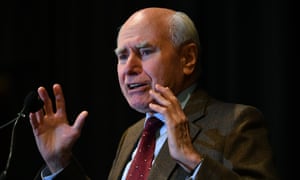THE EMAIL
Sent: 19 October 2018 17:31
To: McGowan, Cathy (MP)
Subject: Children on Nauru
Congratulations Ms McGowan
Thank you for challenging the bipartisan policy of offshore regime that has seen children detained on Nauru for more than five years.
I hope your support for Mr Wilkie's private member's bill generates enough support and pressure on the PM to be effective.
Please, stay strong to help ensure every child and every family is transferred to safety now.
Sincerely,
19 October 2018
Stewart Jä
cc:
Rebekha Sharkie Rebekha.Sharkie.mp@aph.gov.au
Andrew Wilkie andrew.wilkie.mp@aph.gov.au
First Dog on the Moon has it:
https://www.theguardian.com/commentisfree/2018/oct/12/we-all-know-what-is-going-on-in-nauru-even-if-we-pretend-it-is-not-happening
To: McGowan, Cathy (MP)
Subject: Children on Nauru
Congratulations Ms McGowan
Thank you for challenging the bipartisan policy of offshore regime that has seen children detained on Nauru for more than five years.
I hope your support for Mr Wilkie's private member's bill generates enough support and pressure on the PM to be effective.
Please, stay strong to help ensure every child and every family is transferred to safety now.
Sincerely,
19 October 2018
Stewart Jä
cc:
Rebekha Sharkie Rebekha.Sharkie.mp@aph.gov.au
Andrew Wilkie andrew.wilkie.mp@aph.gov.au
First Dog on the Moon has it:
https://www.theguardian.com/commentisfree/2018/oct/12/we-all-know-what-is-going-on-in-nauru-even-if-we-pretend-it-is-not-happening
THE REPLY
Dear Stewart
Please find a link to a question I asked of Prime Minister Scott Morrison on 15 October 2018, and his response. I asked the Prime Minister what it would take for the Government to act with compassion, mercy and justice, to accept the resettlement offer from New Zealand and have the children and their families off Nauru by Christmas.
There is recognition the existing situation for those who remain on Nauru is untenable. A bipartisan solution is needed. Both the Labor Party and the government have to move on this. My call has been for them to work this out. The people of Indi want a compassionate, permanent solution.
Could you please share this speech with your networks and encourage friends and family to view the speech at my website at www.cathymcgowan.com.au/what_will_it_take_to_get_kidsoffnauru.
Stay in touch with further activity on the issue at my website and at the Weekly Scoop.
Warm regards,
Cathy
Cathy McGowan AO MP
Federal Member for Indi
117 Murphy St Wangaratta VIC 3677
P: 5721 7077 | F: 5721 7066
E: cathy.mcgowan.mp@aph.gov.au
Please find a link to a question I asked of Prime Minister Scott Morrison on 15 October 2018, and his response. I asked the Prime Minister what it would take for the Government to act with compassion, mercy and justice, to accept the resettlement offer from New Zealand and have the children and their families off Nauru by Christmas.
There is recognition the existing situation for those who remain on Nauru is untenable. A bipartisan solution is needed. Both the Labor Party and the government have to move on this. My call has been for them to work this out. The people of Indi want a compassionate, permanent solution.
Could you please share this speech with your networks and encourage friends and family to view the speech at my website at www.cathymcgowan.com.au/what_will_it_take_to_get_kidsoffnauru.
Stay in touch with further activity on the issue at my website and at the Weekly Scoop.
Warm regards,
Cathy
Cathy McGowan AO MP
Federal Member for Indi
117 Murphy St Wangaratta VIC 3677
P: 5721 7077 | F: 5721 7066
E: cathy.mcgowan.mp@aph.gov.au














